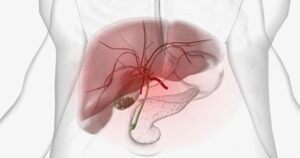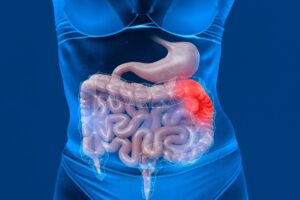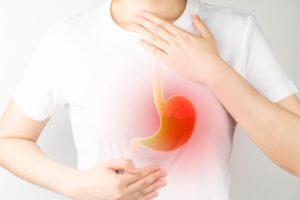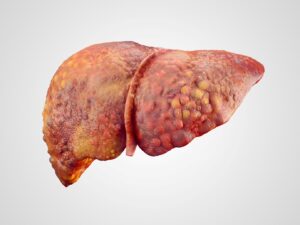What is Heartburn?
It is a burning sensation in the chest that occurs when stomach acid backflows into the esophagus, a condition known as acid reflux.
Despite its name, heartburn is unrelated to the heart.
It happens when the stomach acid irritates the lining of the oesophagus, causing discomfort that can vary from mild to intense.
Heartburn can be an occasional issue or a chronic problem, with frequent heartburn often indicating a condition called GERD (gastroesophageal reflux disease).
Who Gets Heartburn, and What Are Its Triggers?
Heartburn can affect anyone, but it is often triggered by specific factors like certain foods or lifestyle choices. The most common triggers include:
- Eating rich, fatty, spicy, or acidic foods
- Overeating or eating large meals late at night
- Lying down too soon after eating
- Drinking alcohol, coffee, or carbonated drinks
- Smoking or exposure to second-hand smoke
Certain conditions, like obesity, pregnancy, and hiatal hernia, increase the risk of heartburn.
Additionally, medications like birth control pills and blood pressure drugs can also weaken the lower oesophageal sphincter (LES), allowing acid to rise into the oesophagus.
What Are the Symptoms of Heartburn?
The main symptom of heartburn is a burning pain in the middle of the chest, which may radiate up to the throat.
The sensation can last from a few minutes to several hours, depending on the cause.
Other common symptoms include:
- A sour or bitter taste in the mouth
- The backflow of food or liquid into the mouth
- Burping or bloating
- Nausea
Less common but possible symptoms include
- Difficulty swallowing
- Persistent coughing
- Sore throat
- Feeling of a lump in the throat.
often or severe heartburn could be a sign of GERD requiring medical attention.
What Causes Heartburn?
Heartburn occurs when the lower esophageal sphincter (LES), the valve at the base of the oesophagus, becomes weakened or relaxed, allowing stomach acid to flow back into the oesophagus.
Several factors can contribute to this, including:
- Hiatal hernia, which occurs when a portion of the stomach protrudes through the diaphragm.
- Consuming large meals or reclining immediately after eating.
- Wearing snug clothing that exerts pressure on the abdomen.
- Smoking, which can weaken the LES
- Consuming trigger foods like chocolate, citrus, coffee, or alcohol
Chronic heartburn is often a symptom of GERD, where reflux becomes frequent and can lead to complications if untreated.
How Can Heartburn Be Treated?
Occasional heartburn can often be treated with the medications such as antacids that reduce stomach acid.
Lifestyle changes can also help, including:
- Eating smaller, more frequent meals
- Avoiding trigger foods and alcohol
- Losing weight if necessary
- Quitting smoking
- Avoiding lying down for at least three hours after eating
For chronic heartburn or GERD, prescription medications may be needed to decrease acid production and facilitate the healing of the oesophagus. In more severe cases, surgical options like Nissen fundoplication or LINX device implantation can help strengthen the lower esophageal sphincter (LES) and prevent reflux.
Don’t let heartburn disrupt your life. At Complete Gastro Care, our team of expert gastroenterologists offers personalized care to treat heartburn and GERD. With advanced treatments and tailored solutions, we help you find lasting relief. Contact us today to schedule your consultation and take control of your digestive health!









